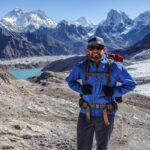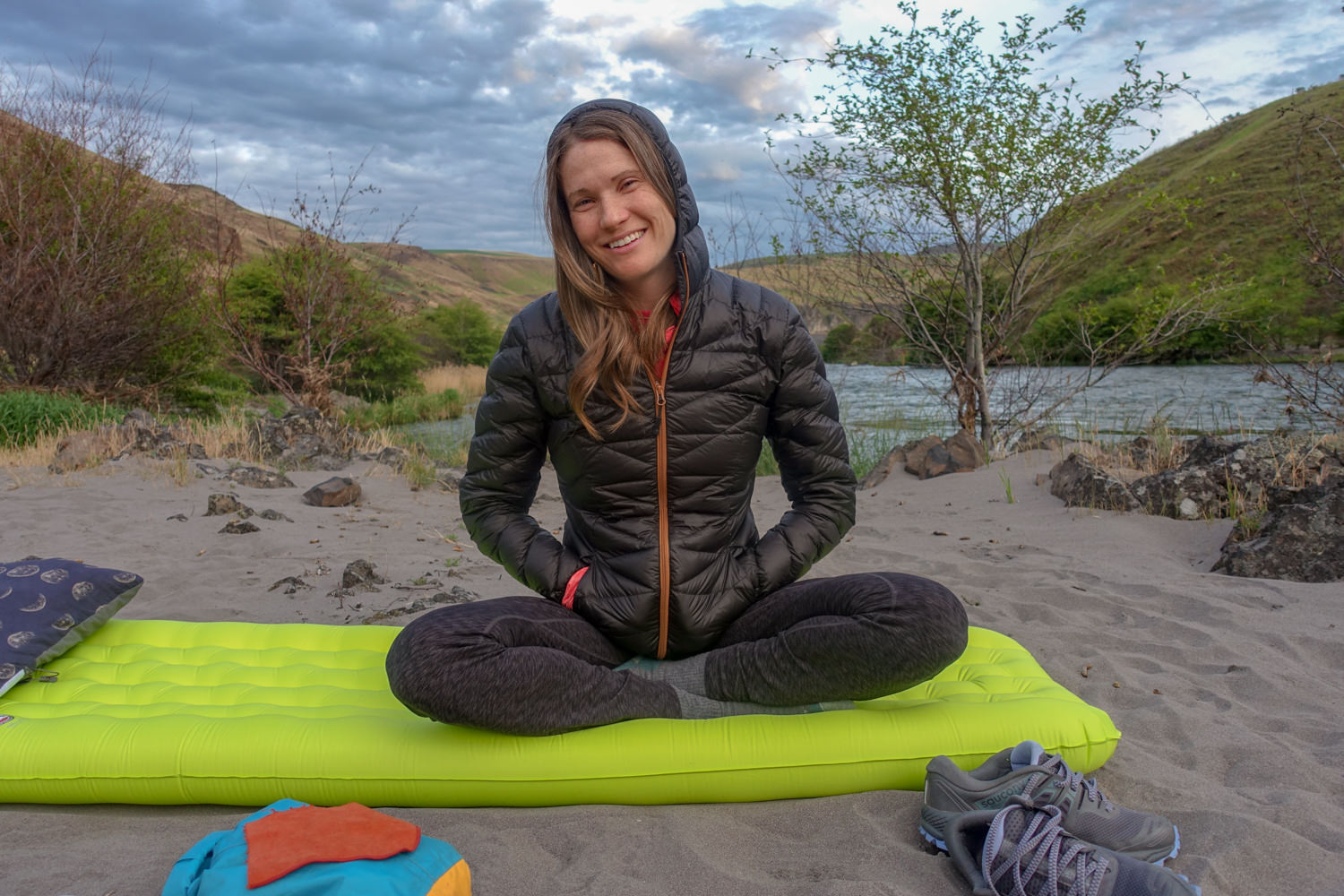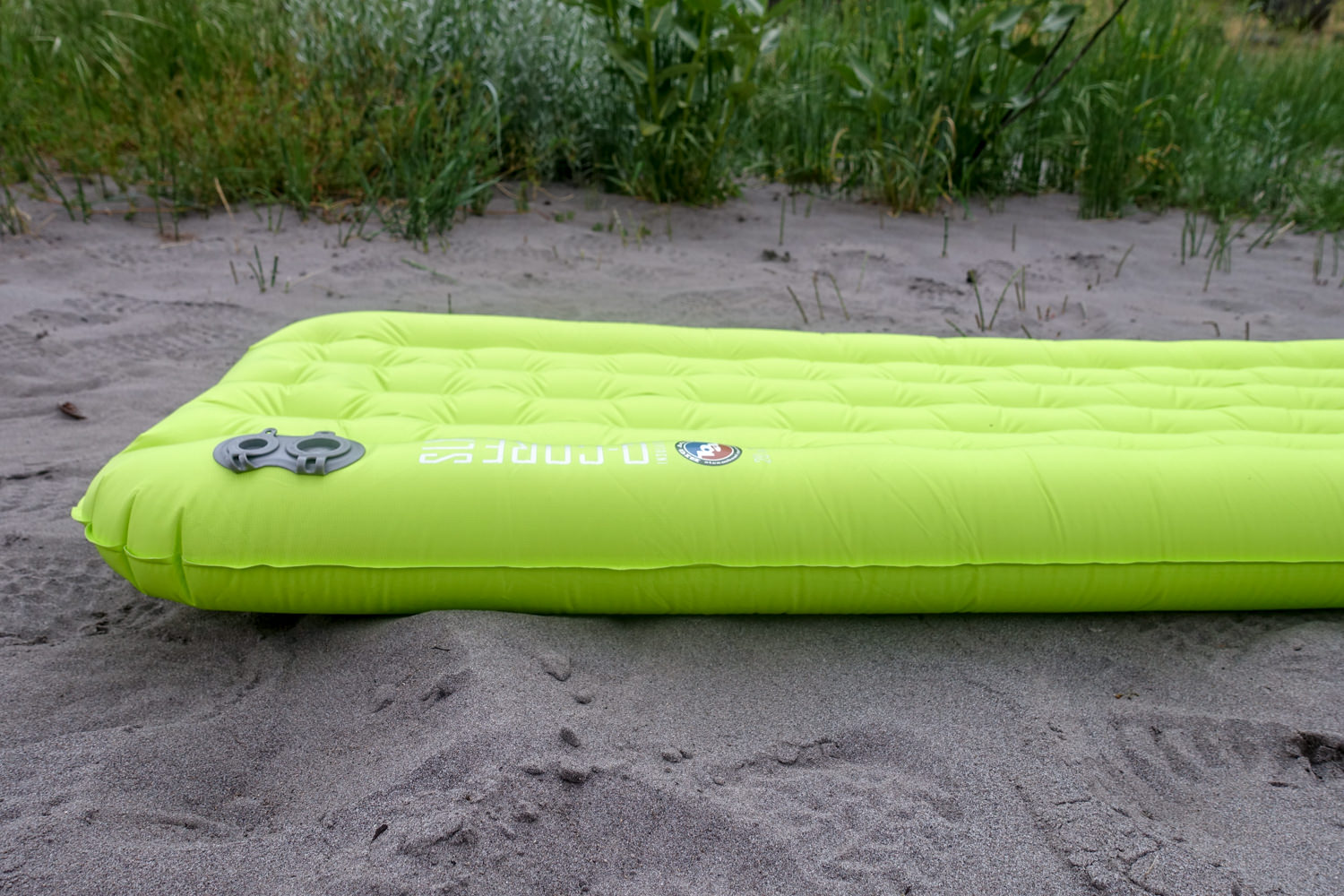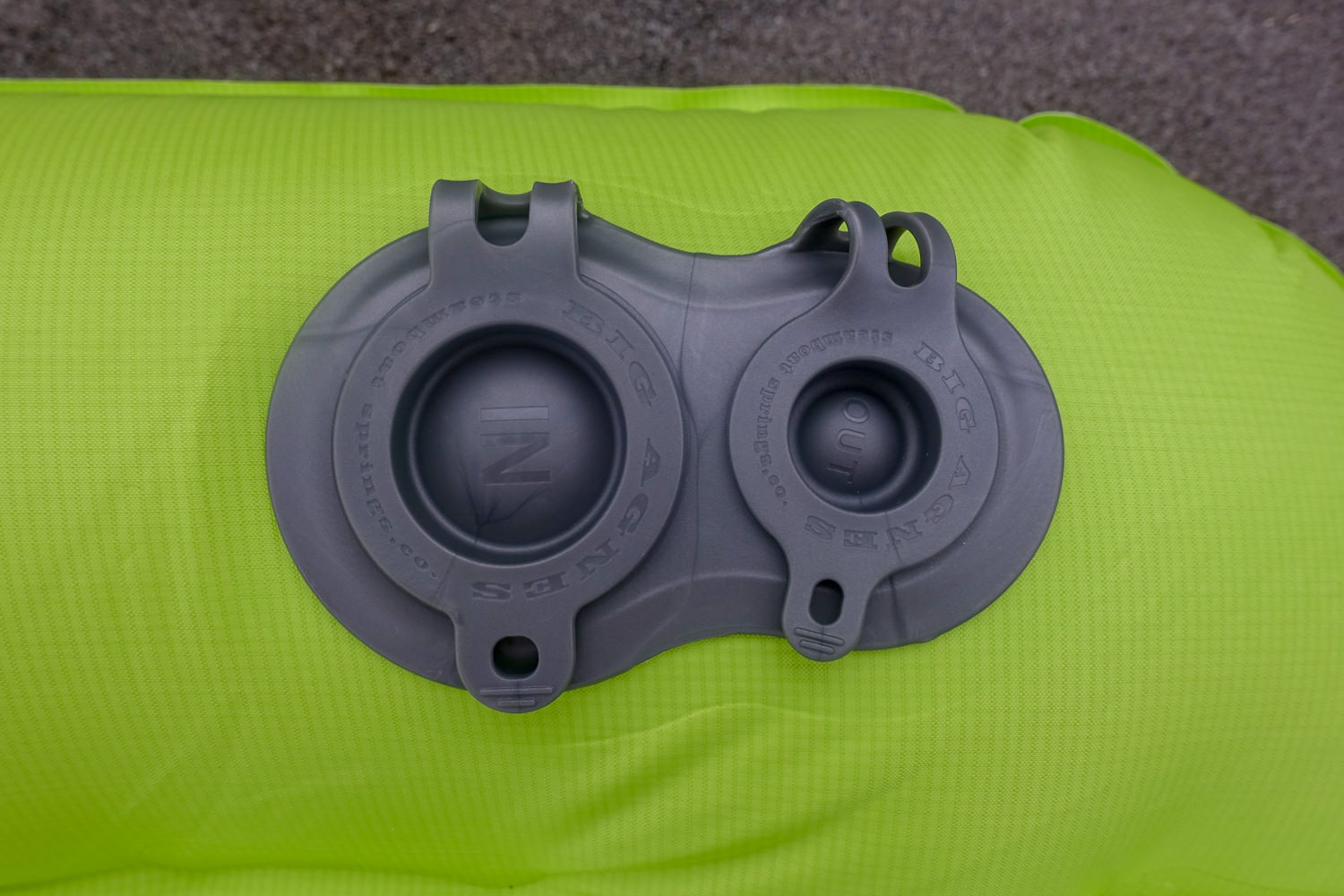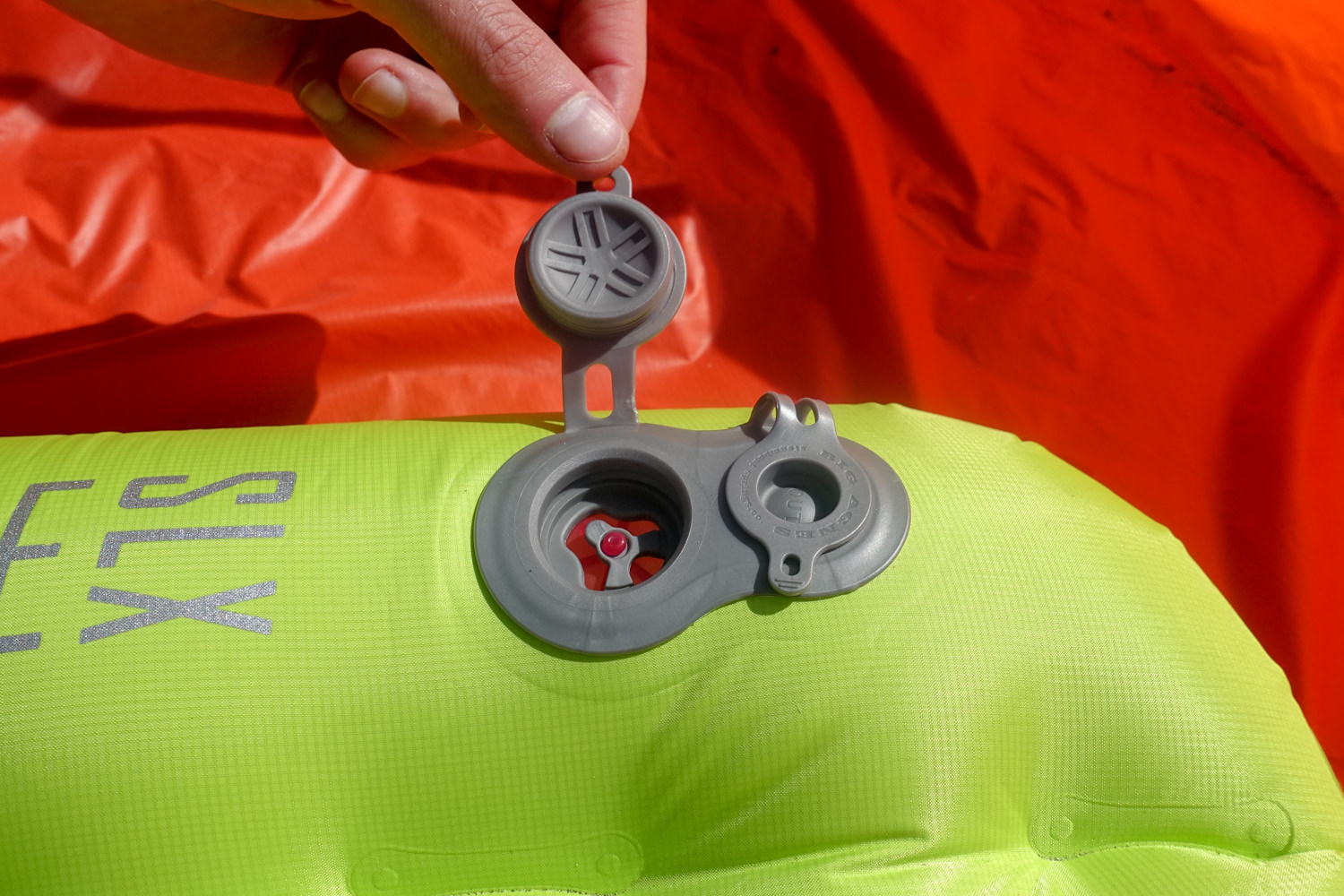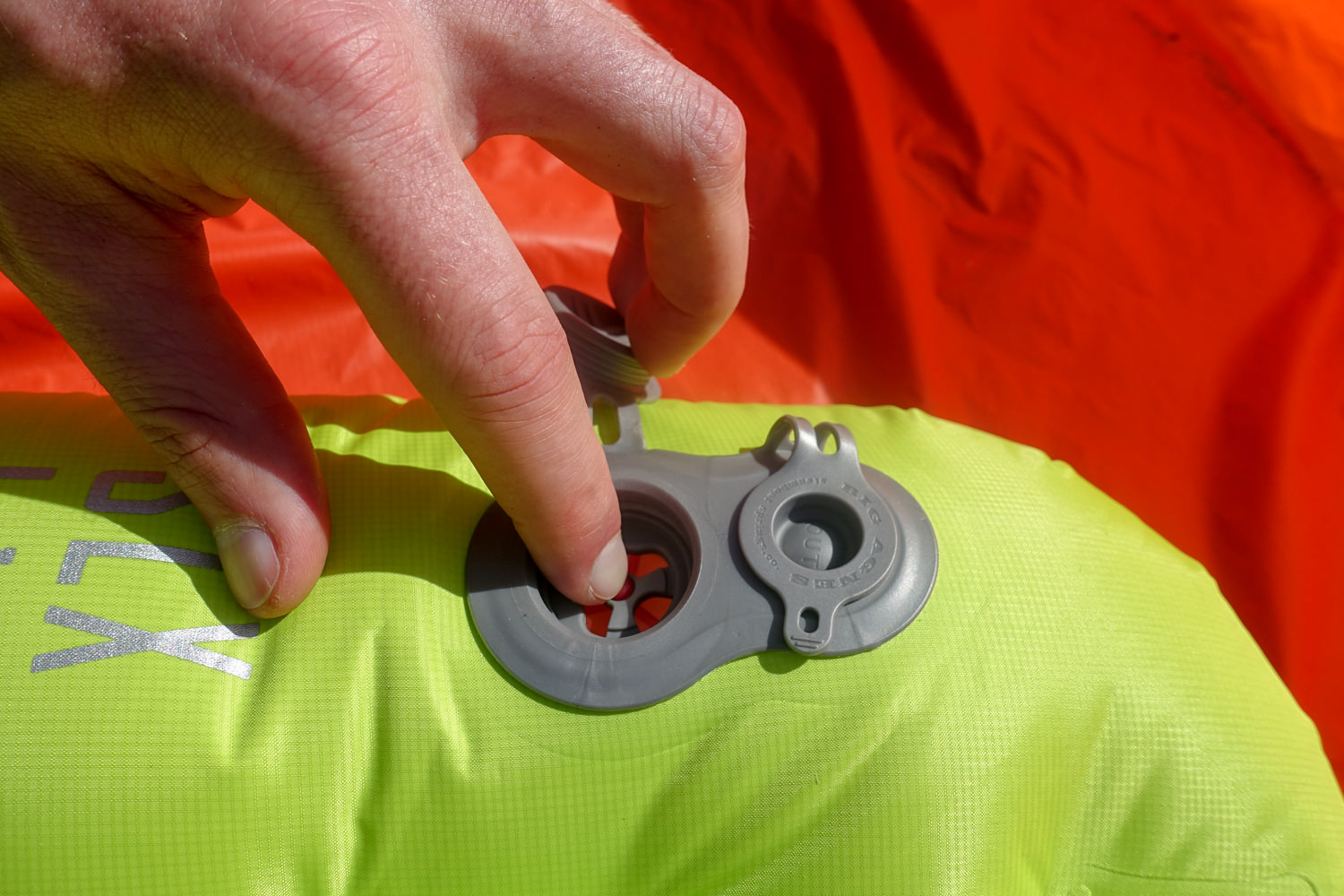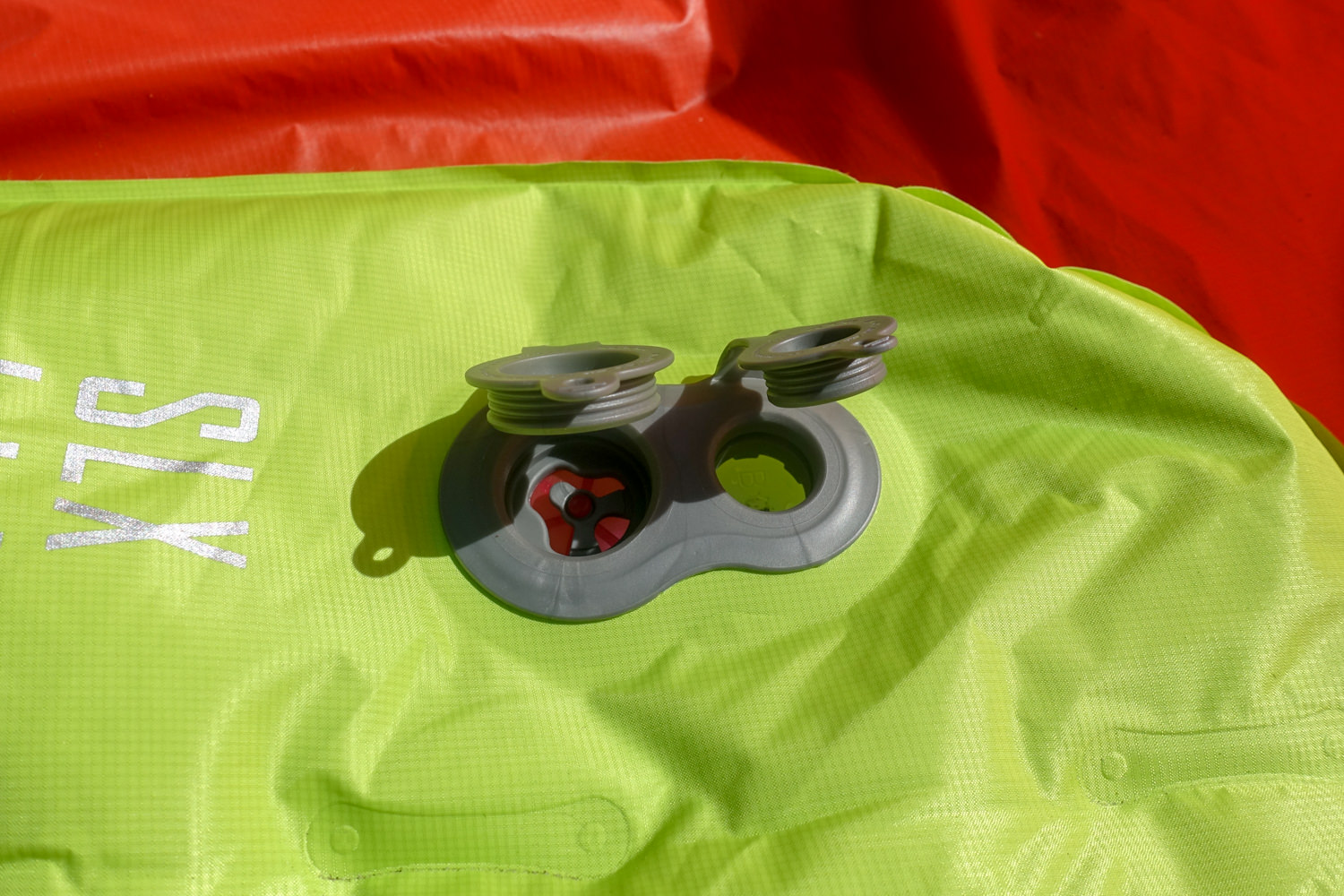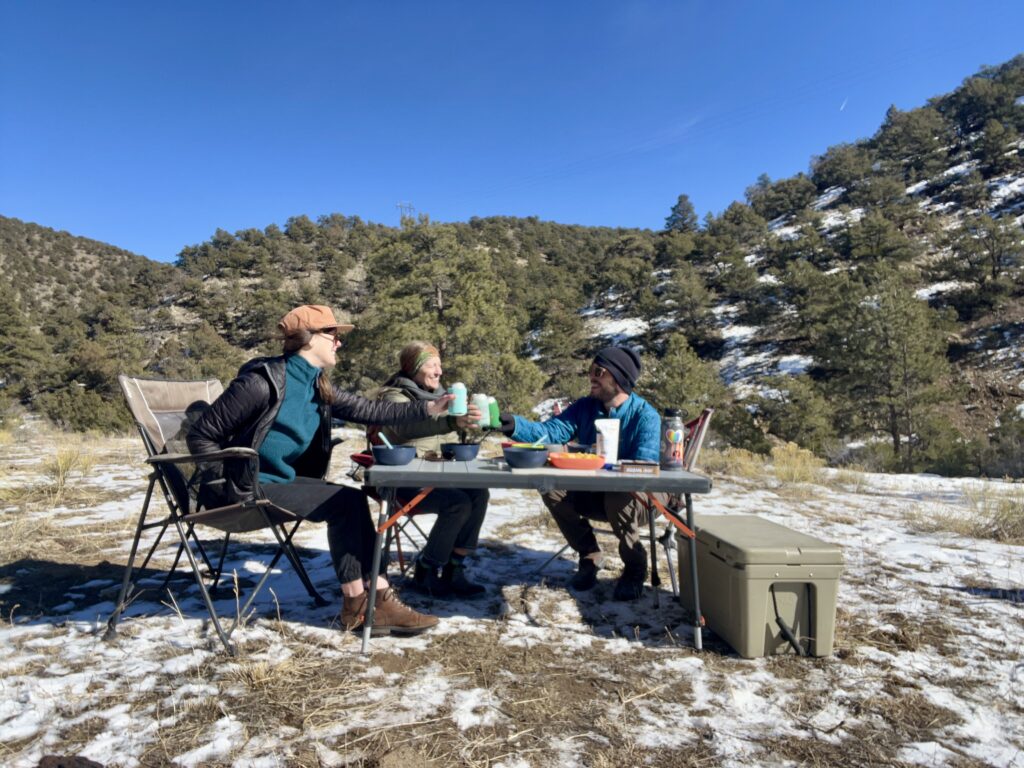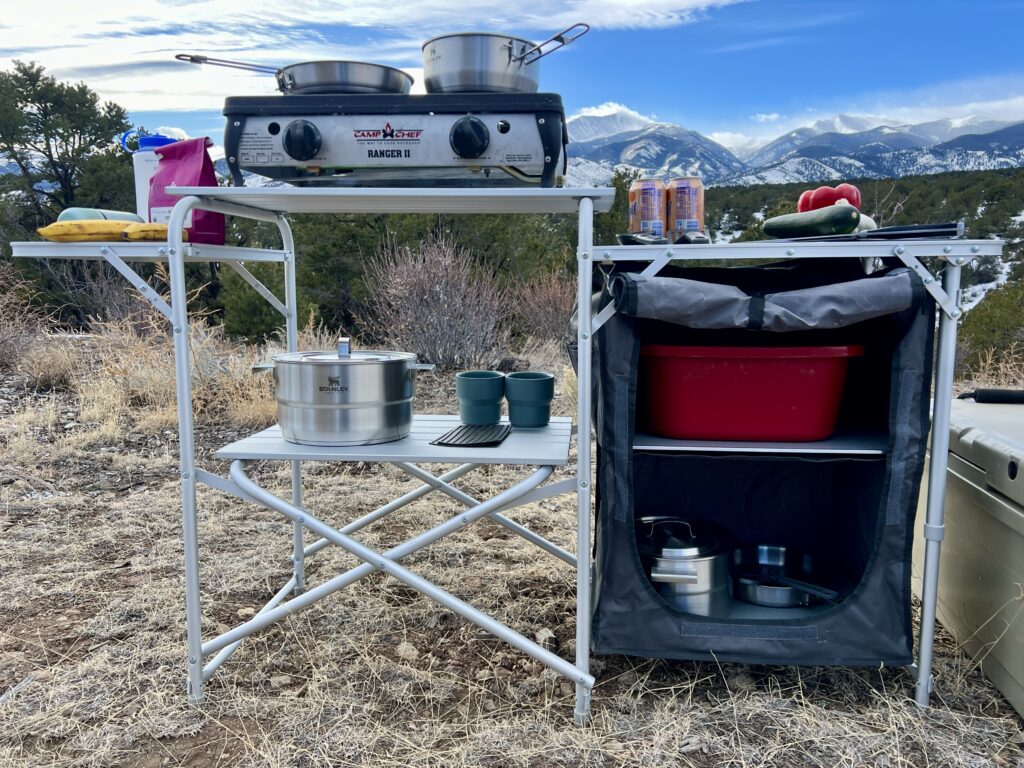The Big Agnes Q Core SLX is a super cushy sleeping pad that differentiates itself from other pads with its large side rails that help keep users centered, and 4.25 inches of supportive thickness. The SLX is one of the thickest backpacking pads on the market, which means it’s really comfortable, but also that there’s a lot of space to fill with your lungs. The Pumphouse Ultra pump sack makes it a lot less cumbersome to inflate the pad, but you’ll have to pick it up separately as it isn’t included in the cost of the SLX. There’s no official R-value for the SLX, but Big Agnes claims it will work down to 32 °F, and we think that’s about right. The SLX is featured in our Best Sleeping Pads guide.
Table of contents
Big Agnes Q Core SLX Sleeping Pad Review
We independently test everything we recommend.
Buying through links on our site supports our work.
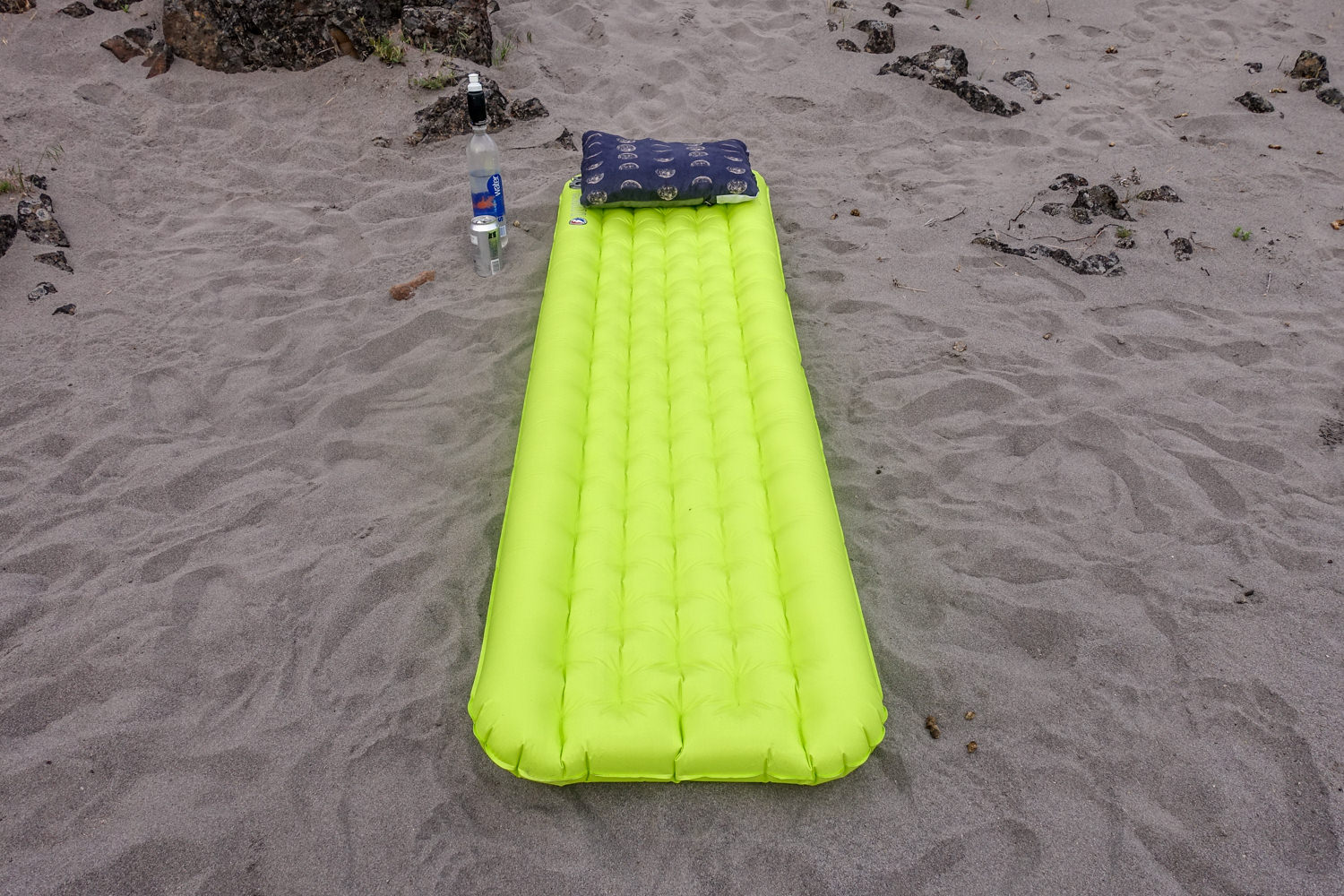
Quick Specs
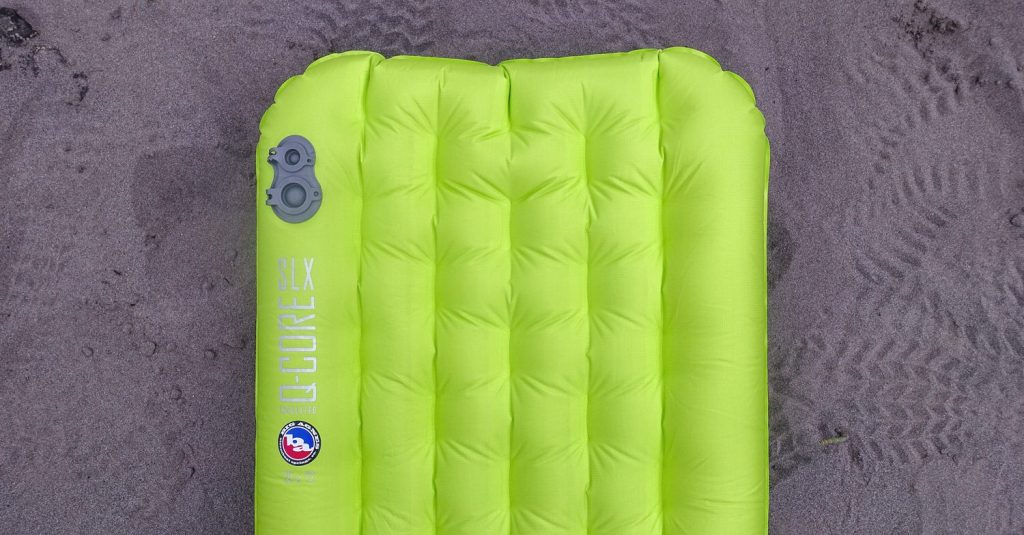
Big Agnes Q Core SLX Sleeping Pad
CleverHiker Rating: 72/100
Price: $105
Weight (Regular Size): 1 lb. 2 oz.
R-Value: 3.2
Sizes: Regular, Wide, Wide regular, Double wide, Petite, and Wide Long sizes available
Product Tested: We tested the Regular size (20 x 72 in.)
Pros
- Comfortable, thick, & supportive
- Large side rails
- Durable materials
- Deflates quickly
- Warm
Cons
- A bit narrow
- Cumbersome to inflate
- Wide & long versions are expensive
- Slightly heavy & bulky
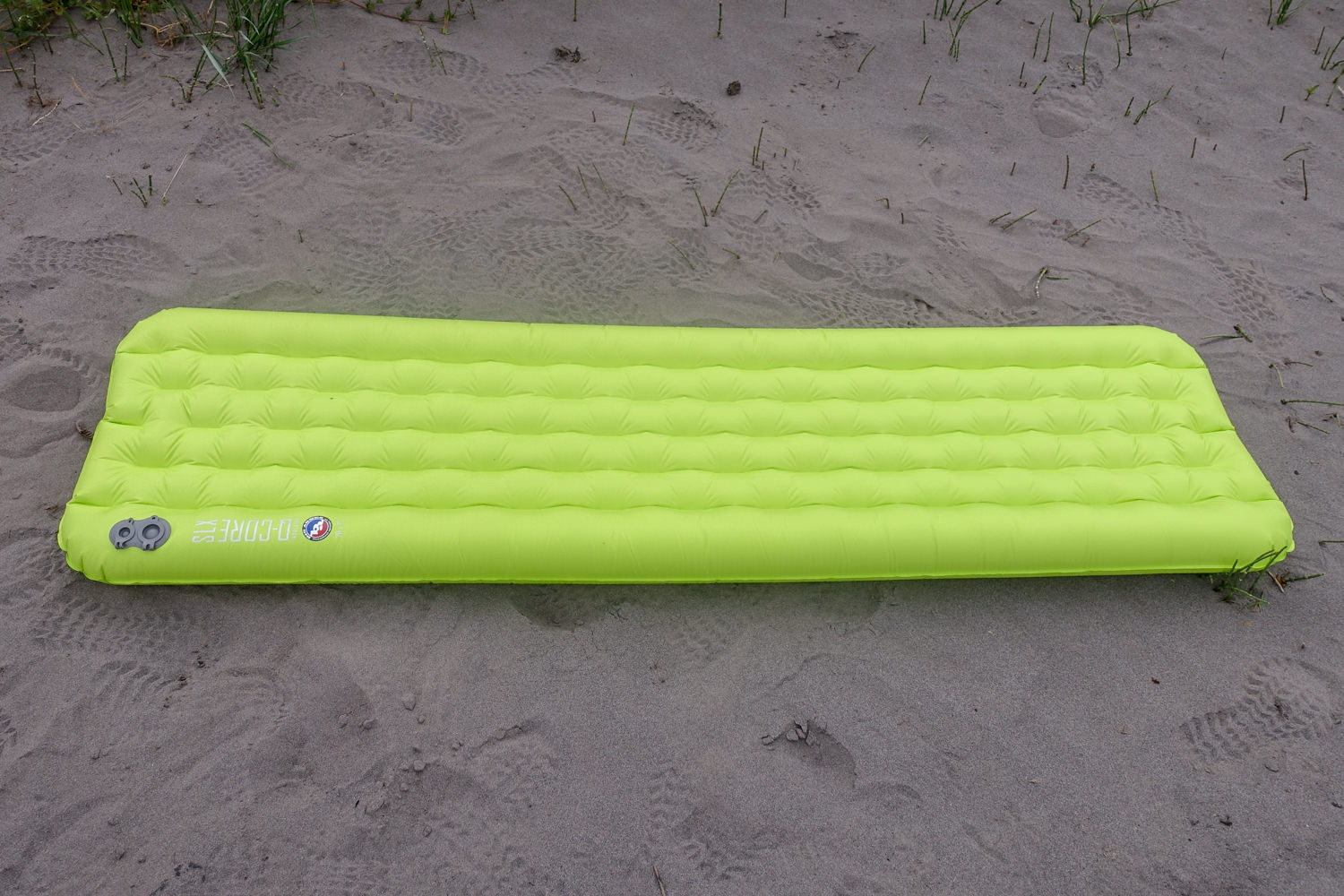
Pros
COMFORTABLE, THICK, & SUPPORTIVE
The SLX is super cushy with an astounding 3.5 inches of thickness. That means you’ll be nearly 2 inches higher off the ground than you would be on most standard sleeping pads. The SLX is very comfortable, and because it’s so thick and supportive, there’s almost no chance of bottoming out, which is great for sleepers that tend to shift around in the night.
LARGE SIDE RAILS
The SLX’s pronounced side rails keep your body centered on the pad for greater comfort and insulation whether you sleep on your back or on your side. There’s also very little risk of accidentally sliding off the SLX in the night, which is great.
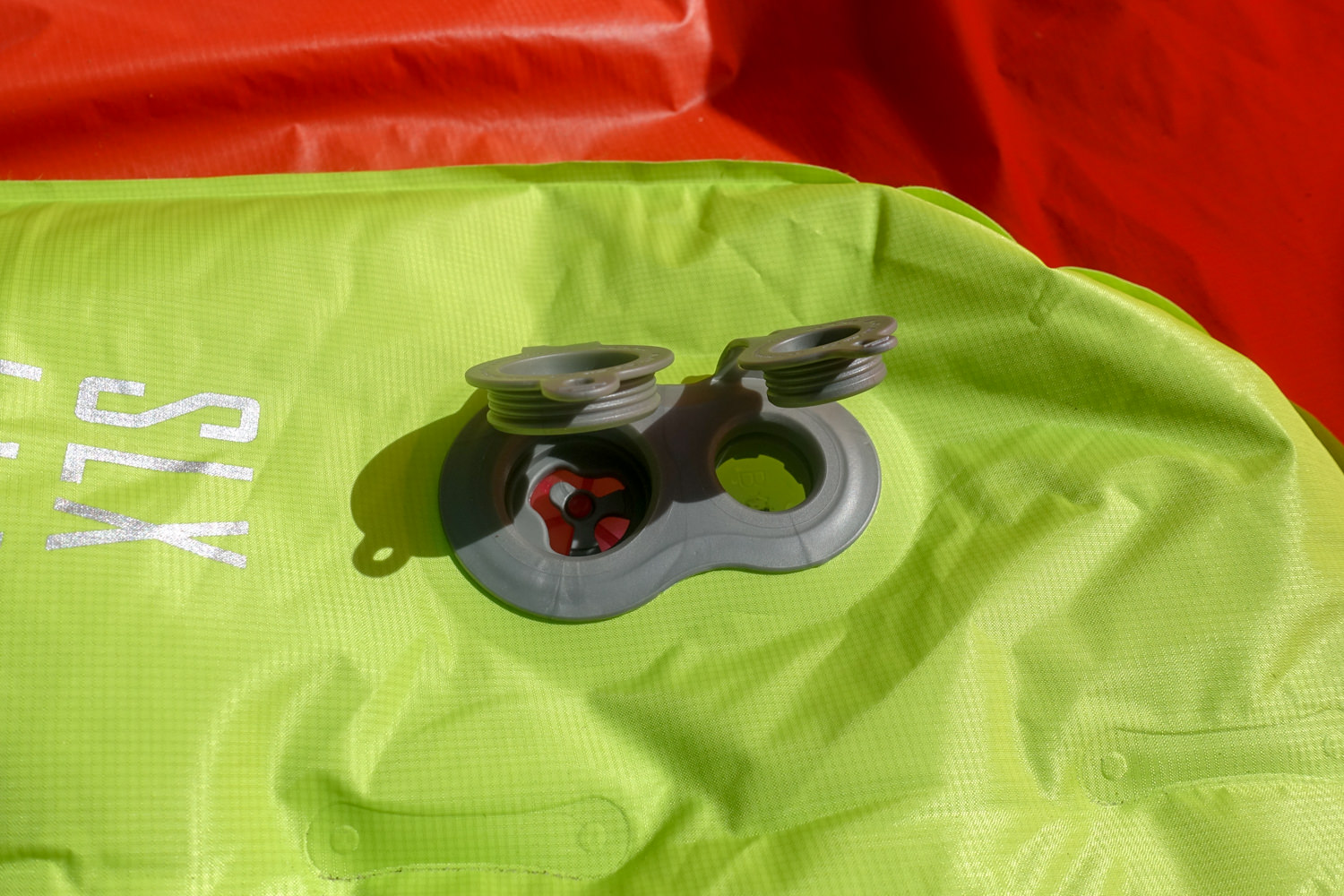
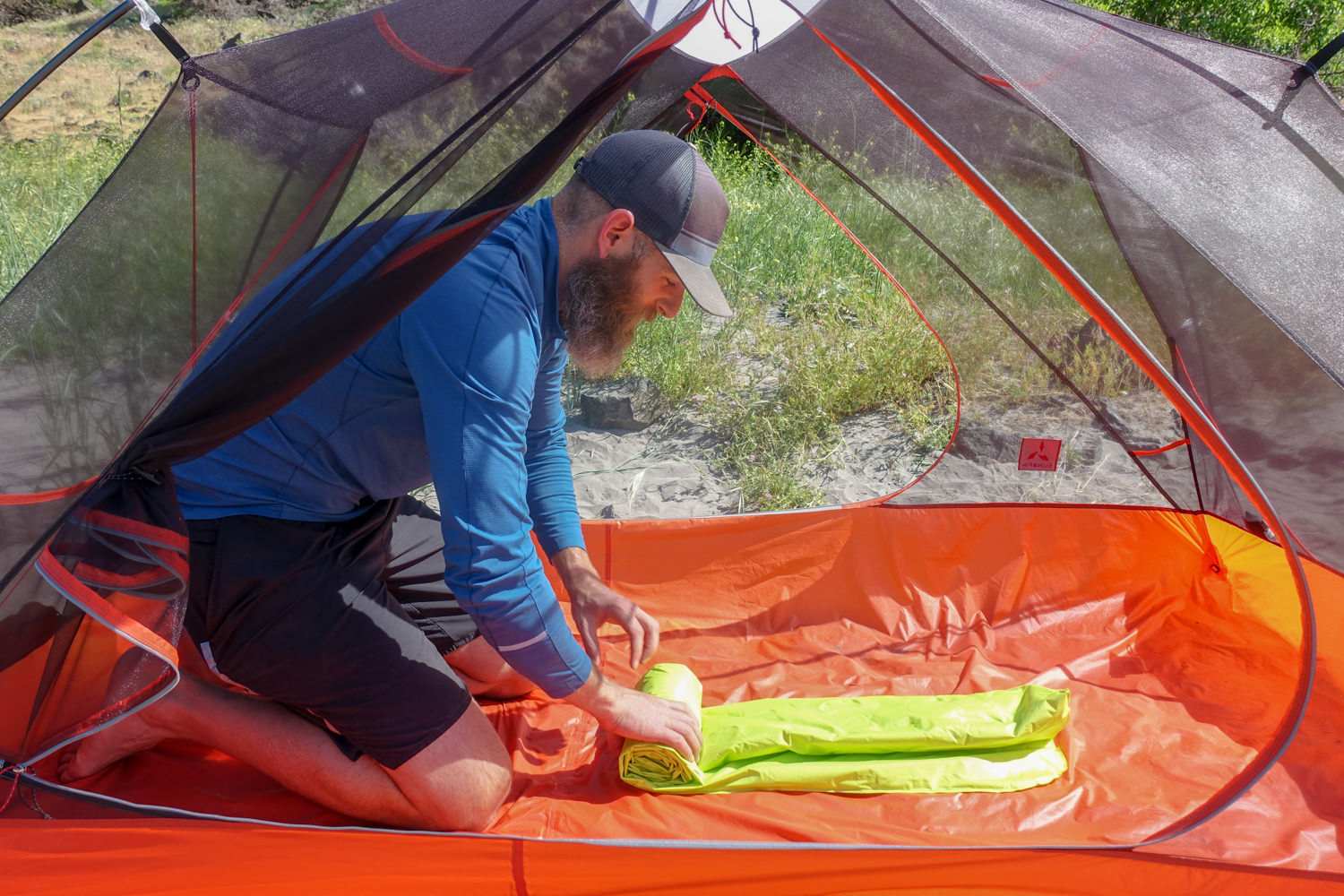
DURABLE MATERIALS
Though all air pads can potentially puncture, the SLX is built with lightweight double ripstop nylon fabric and lamination that improves it’s tear-strength. The materials are heavier than those used in many competing sleeping pads and it feels like this pad will last a very long time if treated with care.
DEFLATES QUICKLY
The valve system on the SLX is among the best on the market. We love how quickly the pad deflates with its high-volume dump-valve, which makes packing it up that much easier and stress-free. The SLX also has a large valve that opens up for fast inflation and makes micro-adjusting easy.
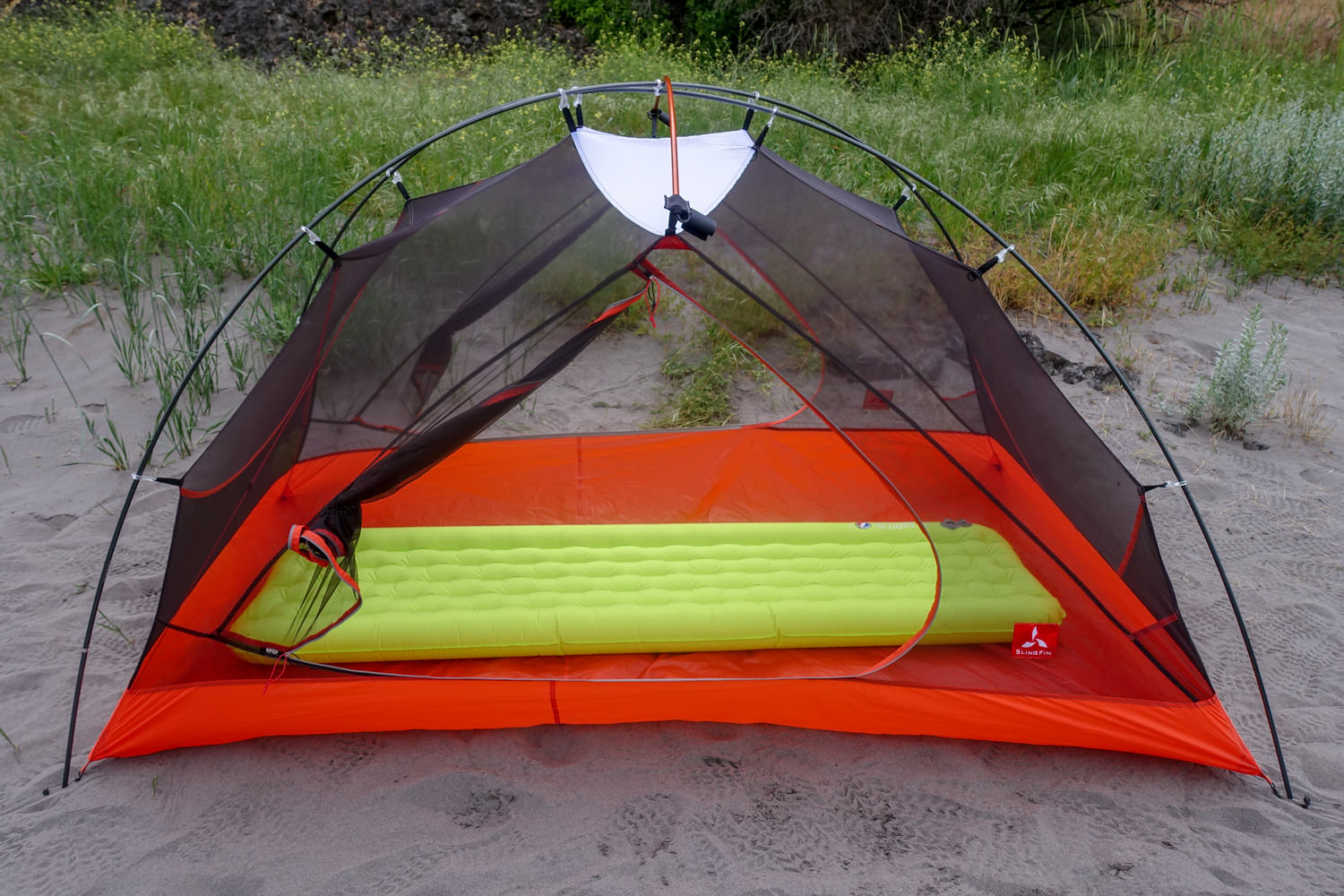
WARM
Big Agnes lists an R-value of 3.2, and they rate the SLX down to 32°F (0°C) which we think is about right. Other companies tend to exaggerate in this area, but Big Agnes thankfully does not. The SLX offers plenty of warmth and insulating value for above-freezing, 3-season backpacking, and we appreciate their straightforwardness.
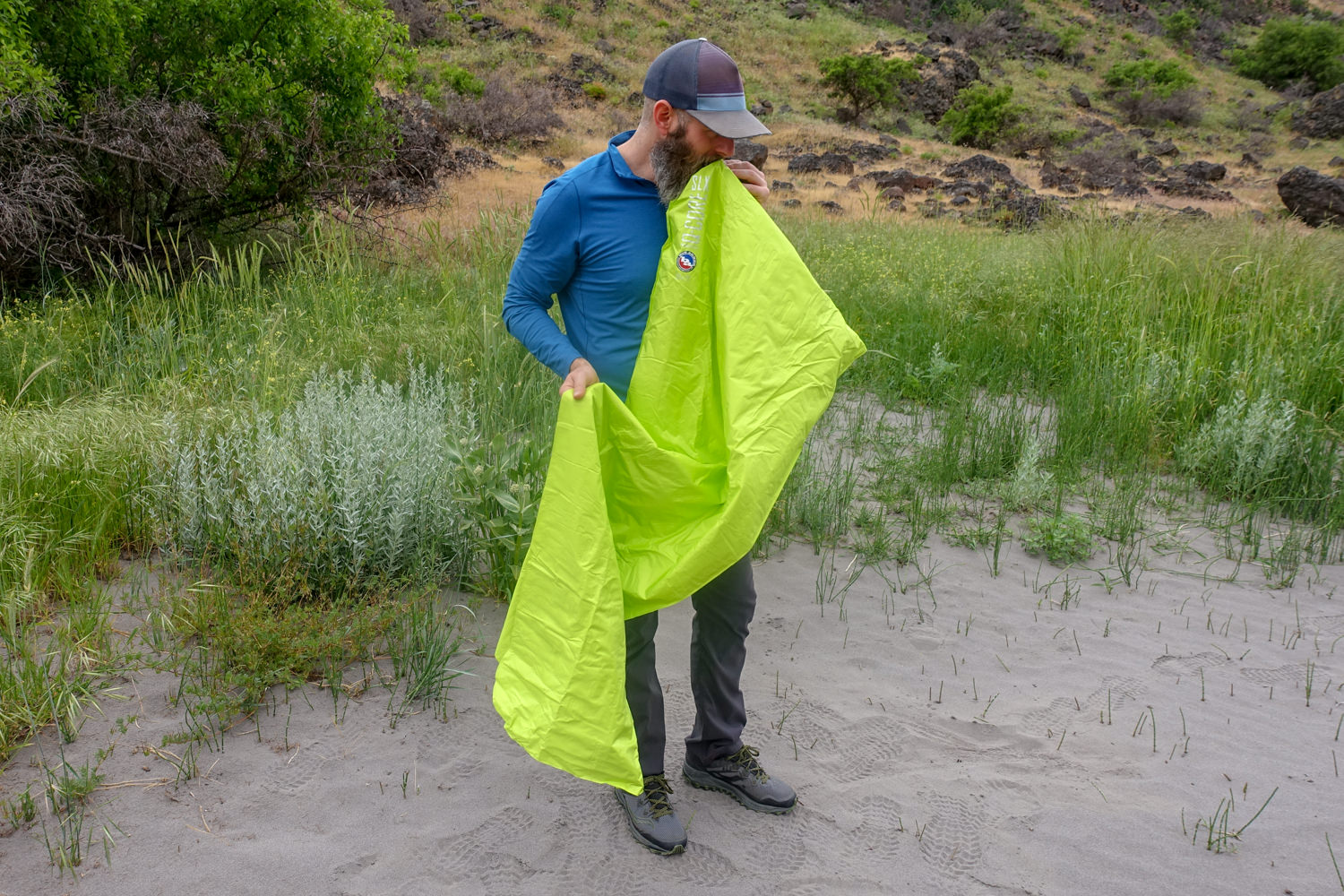
Cons
A BIT NARROW
Though the large side rails are nice for keeping you centered, they do have a minor drawback. They make the SLX seem extra narrow, though it has average dimensions, because the side rails are thick and rounded. If your arms fall off, (which is common when using regular-width pads), the drop is exaggerated by the thickness, and could be annoying. We recommend that back sleepers, who might find the arm-drop issue particularly disconcerting, bump up to the Wide size to provide adequate space for arms to rest at the sides. Tall people may also want to bump up to the Wide/Long size as the Regular SLX seems a bit tight lengthwise as well.
CUMBERSOME TO INFLATE
Because the SLX is so thick and voluminous, it takes a lot of lung power to fill, which might be off-putting for those who have a tough time inflating air pads. Big Agnes does sell a pump sack to make inflation less laborious, the Pumphouse Ultra, but it will cost you an additional $35. We have the Pumphouse Ultra, and it works well, but we don’t like it quite as much as the Vortex pump sack that comes complimentary with the popular NEMO Tensor sleeping pad.
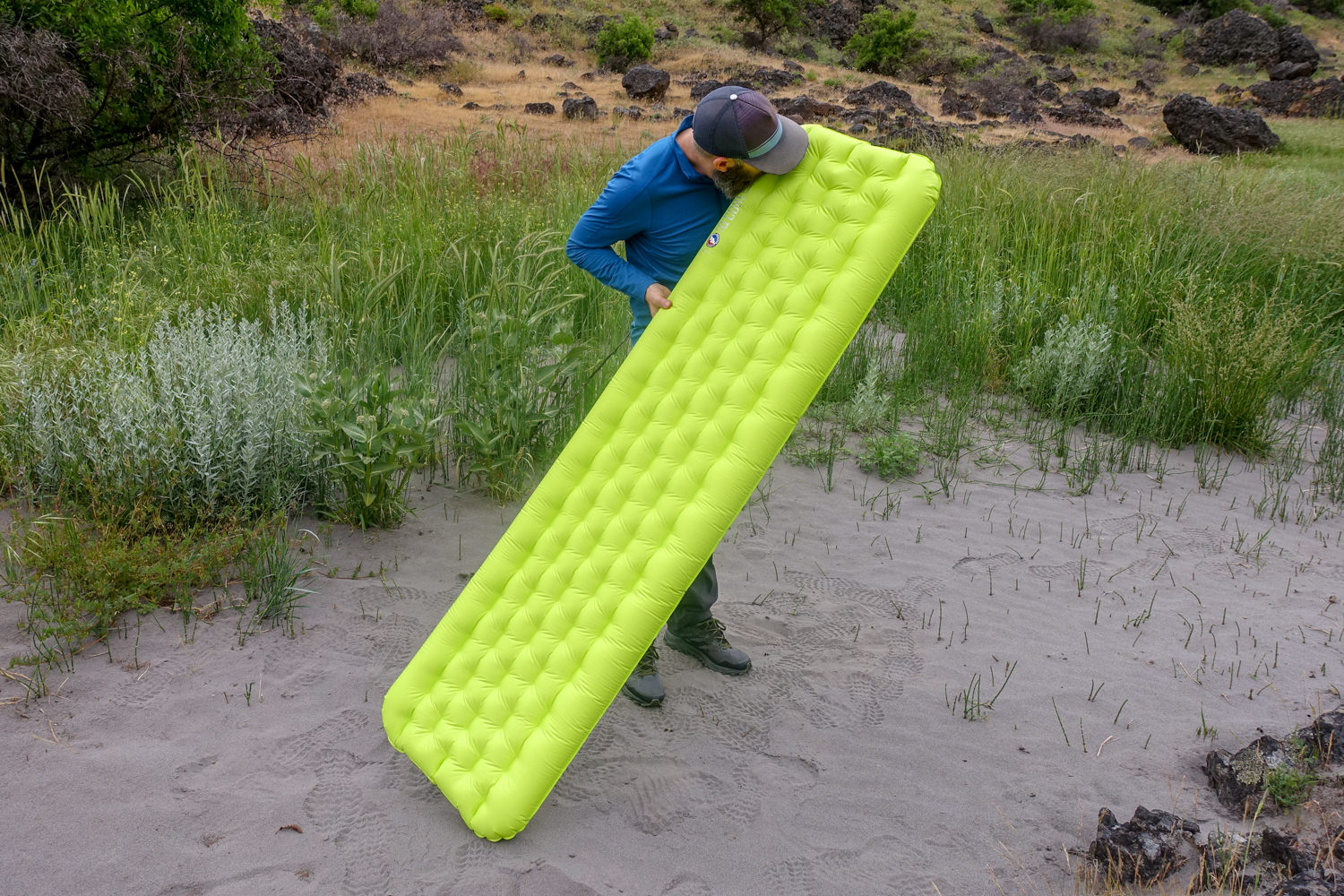
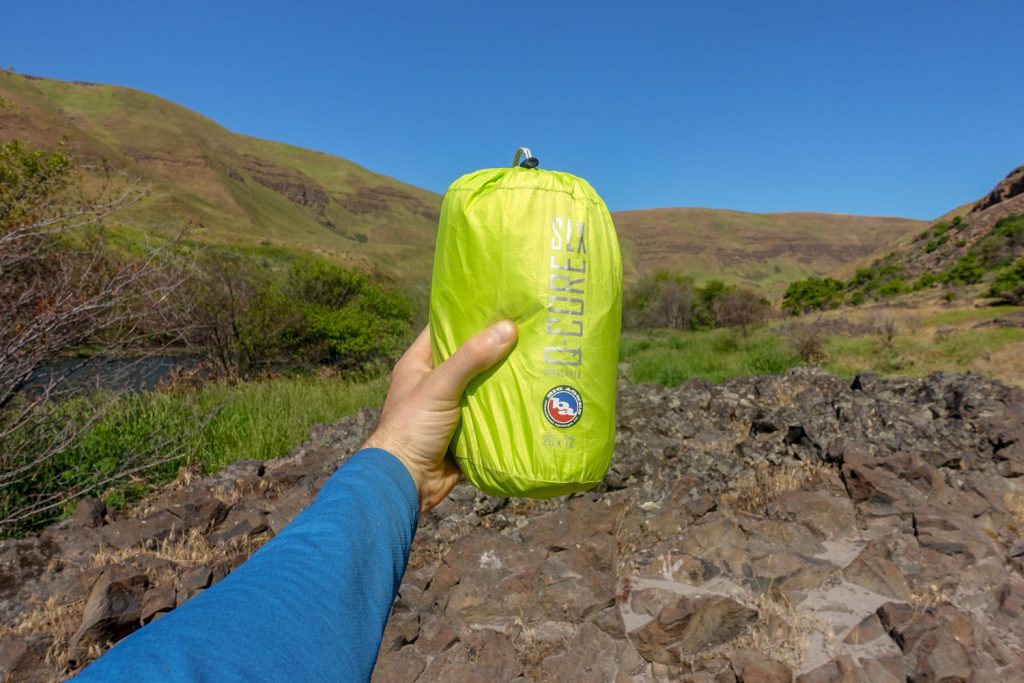
WIDE & LONG VERSIONS ARE EXPENSIVE
With an MSRP of $149.95, the price of the SLX is more affordable than the top-rated 3-season backpacking pads like the NEMO Tensor and Therm-a-Rest NeoAir XLite. The price for the Regular model seems fair, but we’d recommend bumping up to the Wide size for increased comfort and doing so adds a substantial amount to the price.The Regular Wide model has an MSRP of $210, and the Wide Long comes to $220, which is pretty expensive for a pad that isn’t rated to 4-season use.
SLIGHTLY HEAVY & BULKY
The Regular SLX weighs 16 ounces (1 pound) which is close to the weight of other leaders in its category, except for Therm-a-Rest, who blows the competition out of the water with the NeoAir UberLite and XLite. Weighing only 9 oz., the UberLite is nearly half a pound lighter than the SLX, which is a big deal for backpacking, though the SLX is a bit more durable. The Therm-a-Rest XLite weighs only 12 oz., and the NEMO Tensor, 15 oz., which demonstrates that the weight of the SLX is not bad, but it isn’t among the best. The SLX is also slightly on the bulkier side when packed and isn’t quite as small as some air pads, though the weight difference is more noticeable that the size.
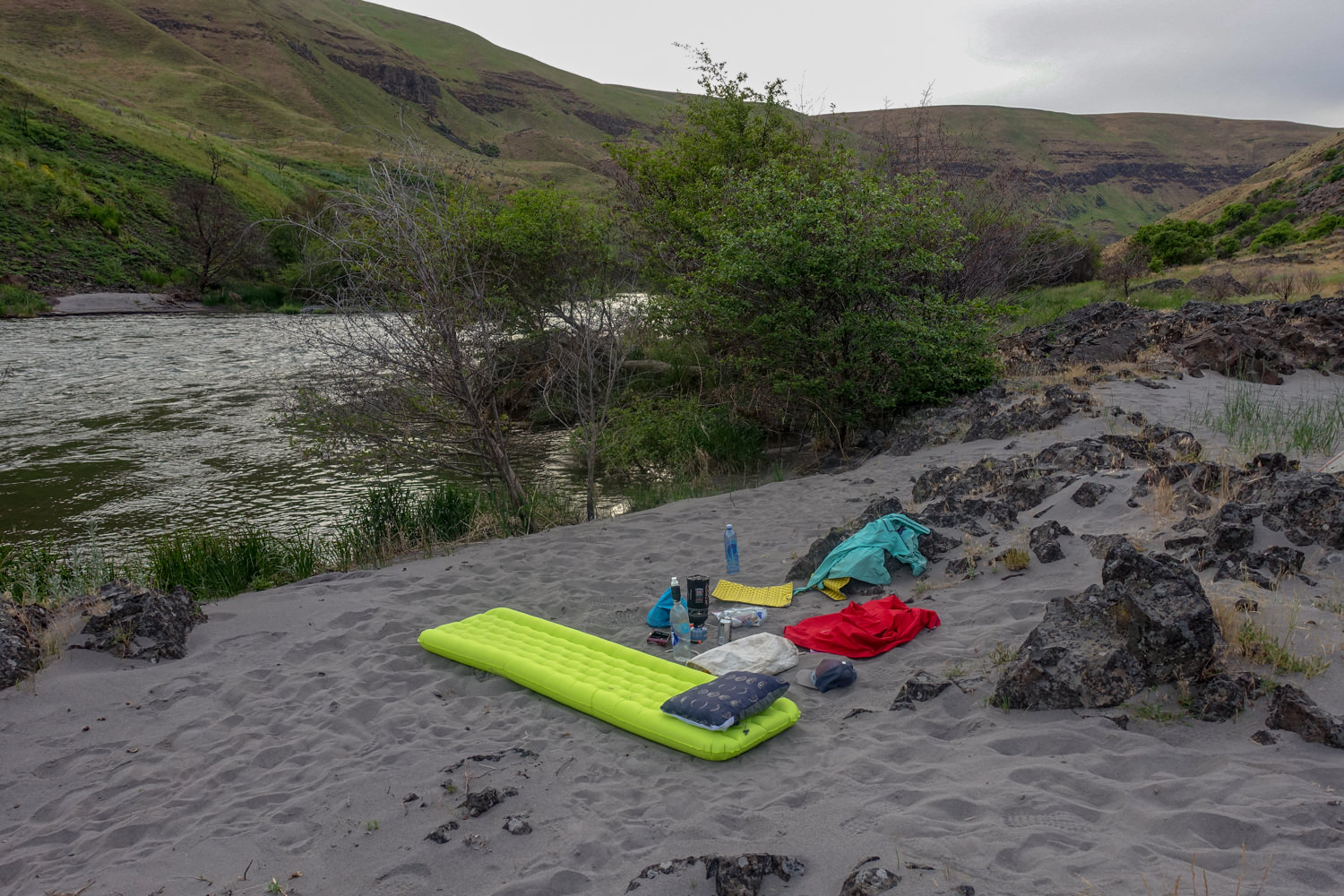
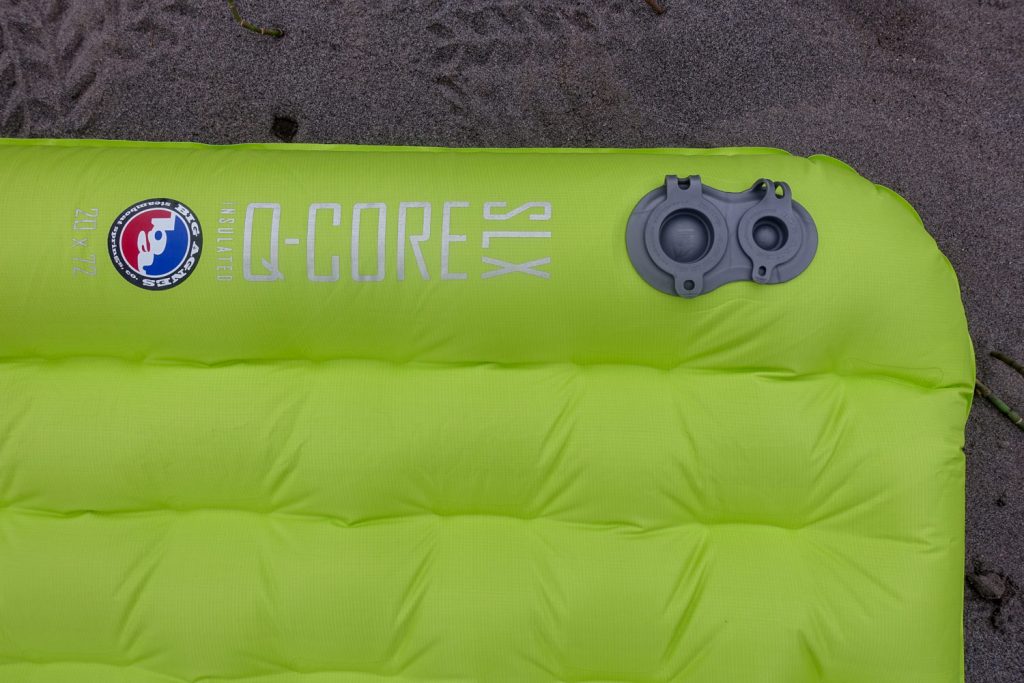
Bottom line
Overall, the SLX is a really good option for those who like the feeling of side rails to keep them centered and want a really cushy, comfortable pad they won’t bottom out on. The SLX isn’t the most ultralight or compact pad on the market, but it might be worth carrying the extra weight for those who love good backcountry sleep and like the SLX’s style. The SLX is made with fairly durable materials and has a really great valve that makes purging air quick and easy. We do wish the Wide and Long versions weren’t so expensive and that the SLX came with a Pumphouse Ultra included.
Want to see how the Big Agnes Q Core SLX Pad compares with other sleeping pads? Check out our list of the 10 Best Backpacking Sleeping Pads to get the inside scoop on products we’ve tested and used in the backcountry.

